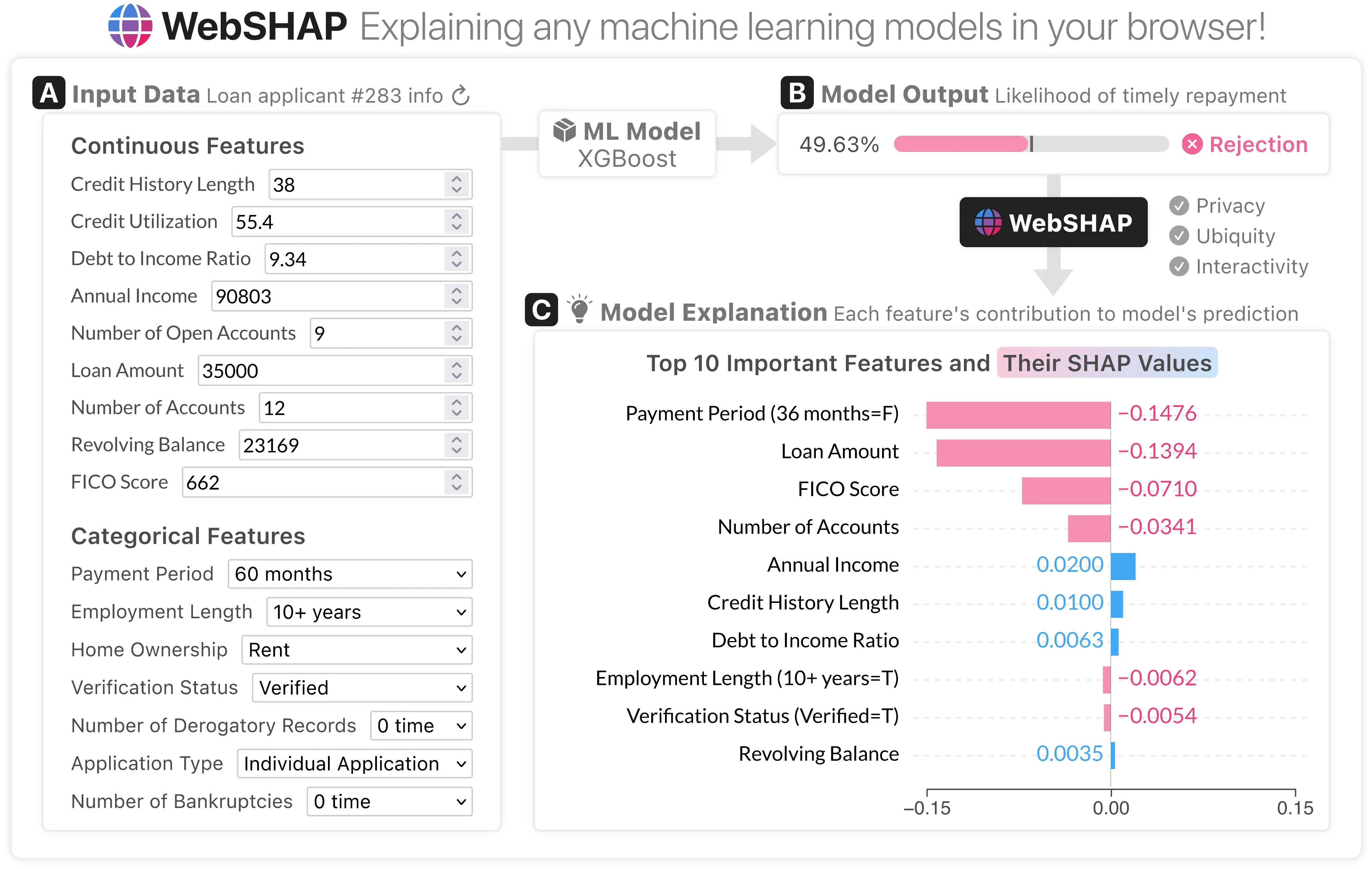WebSHAP: Towards Explaining Any Machine Learning Models Anywhere

Demo Video
Abstract
As machine learning (ML) is increasingly integrated into our every- day Web experience, there is a call for transparent and explainable web-based ML. However, existing explainability techniques often require dedicated backend servers, which limit their usefulness as the Web community moves toward in-browser ML for lower latency and greater privacy. To address the pressing need for a client-side explainability solution, we present WebSHAP, the first in-browser tool that adapts the state-of-the-art model-agnostic explainability technique SHAP to the Web environment. Our open-source tool is developed with modern Web technologies such as WebGL that leverage client-side hardware capabilities and make it easy to integrate into existing Web ML applications. We demonstrate WebSHAP in a usage scenario of explaining ML-based loan approval decisions to loan applicants. Reflecting on our work, we discuss the opportunities and challenges for future research on transparent Web ML. WebSHAP is available at https://github.com/poloclub/webshap.
Citation
WebSHAP: Towards Explaining Any Machine Learning Models Anywhere
@inproceedings{wangWebSHAPExplainingAny2023,
title = {{{WebSHAP}}: {{Towards Explaining Any Machine Learning Models Anywhere}}},
shorttitle = {{{WebSHAP}}},
booktitle = {Companion {{Proceedings}} of the {{Web Conference}} 2023},
author = {Wang, Zijie J. and Chau, Duen Horng},
year = {2023},
doi = {10.1145/3543873.3587362},
}
 Chau.webp)